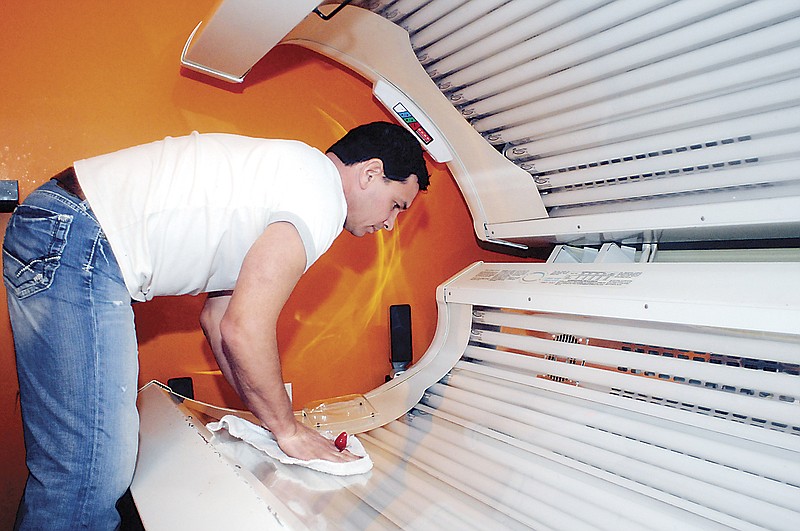A new 10 percent federal tax to be levied on tanning parlors as part of health care legislation has Chattanooga-area small business owners worried about making ends meet
The tax, which goes into effect in July, applies to ultraviolet tanning beds, but not to other options such as spray tans or lotions."It's going to hurt a lot of the smaller tanning salons," said Brian Henry, owner of Tan-O-Rama. "Everything is going to be passed on to the customer."
Joyce Land, owner of Sunstar Tan in East Ridge, said some tanning parlors already have closed their doors because of the recession, and that the new tax could push more over the edge.
"A small business like ours, you can't pay it out of your pocket," Mrs. Land said. "There are not but three of us left on Ringgold Road. Four already closed down across the street."
At Ultimate Tan on Ringgold Road, owner Mark Kernea said he thinks it's unfair to single out women, who make up 70 percent of his customers base, for wanting to look good.
TEXTBOX: What is the Tanning Tax?* 10 percent sales tax on the use of electronic products designed for tanning that use one or more ultraviolet lamps with wavelengths between 200 and 400 nanometers.* Expected to generate $2.7 billion to help pay for health overhaul* Other sunless tanning options like spray tans or lotions are not taxed at the new rate* Goes into effect July 1* Designed to replace 5 percent tax on cosmetic surgery, which was originally expected to generate $5.8 billion.Source: CNN Money
"Are you going to tax outdoor sunshine? Are you going to tax hotels? Beaches? Resorts?" he asked. "They don't want to talk about how people who don't get enough sunshine are at higher risk of cancer, or how birth defects are higher in people who don't get enough sunshine."
Stephanie Claiborne, manager of Malibu Tanning Supply, said that what started as a tax on cosmetic botox injections to help pay for health care legislation turned into a tax on an entire industry.
"We're against it, because we're a small business and it hurts us," Ms. Claiborne said.
In addition to those who tan for cosmetic reasons, Ms. Claiborne added that some customers tan for the health benefits.
"We've had people tanning for seasonal depression, vitamin D, all that stuff," she said.
The Indoor Tanning Association agrees with her. John Overstreet, executive director of the ITA, called the tax a "classic backroom deal."
"You've got a couple very wealthy dermatological associations, they see this 'botax' in there, a tax on cosmetic procedures, and three days before Christmas they cut a backroom deal, and they knock their tax provision out and they stick this one in," he claimed.
"There are about 17,000 of these businesses and millions of customers who are now going to have to pay this tax."
William James, current president of the American Academy of Dermatology Association, denied the accusation that dermatologists were only trying to save their own skin.
"There was originally a cosmetic tax in the health care reform bill, and that was pulled and replaced with a tanning tax, that's true," he said, but added, "People go in there to have a nice even tan, but over time ultraviolet light damages the skin."
The AADA not only supports the tanning tax, the organization also "opposes indoor tanning and supports a ban on the production and sale of indoor tanning equipment for nonmedical purposes," according to a fact sheet published on the organization's Web site.
In addition, edible supplements can easily provide the same Vitamin D benefits as a tanning bed or sunlight, without the risk of melanoma, Dr. James said.
"One of the reasons we have this health care reform, we're trying to have less money spent on preventable disease and have people be healthy," he said.

